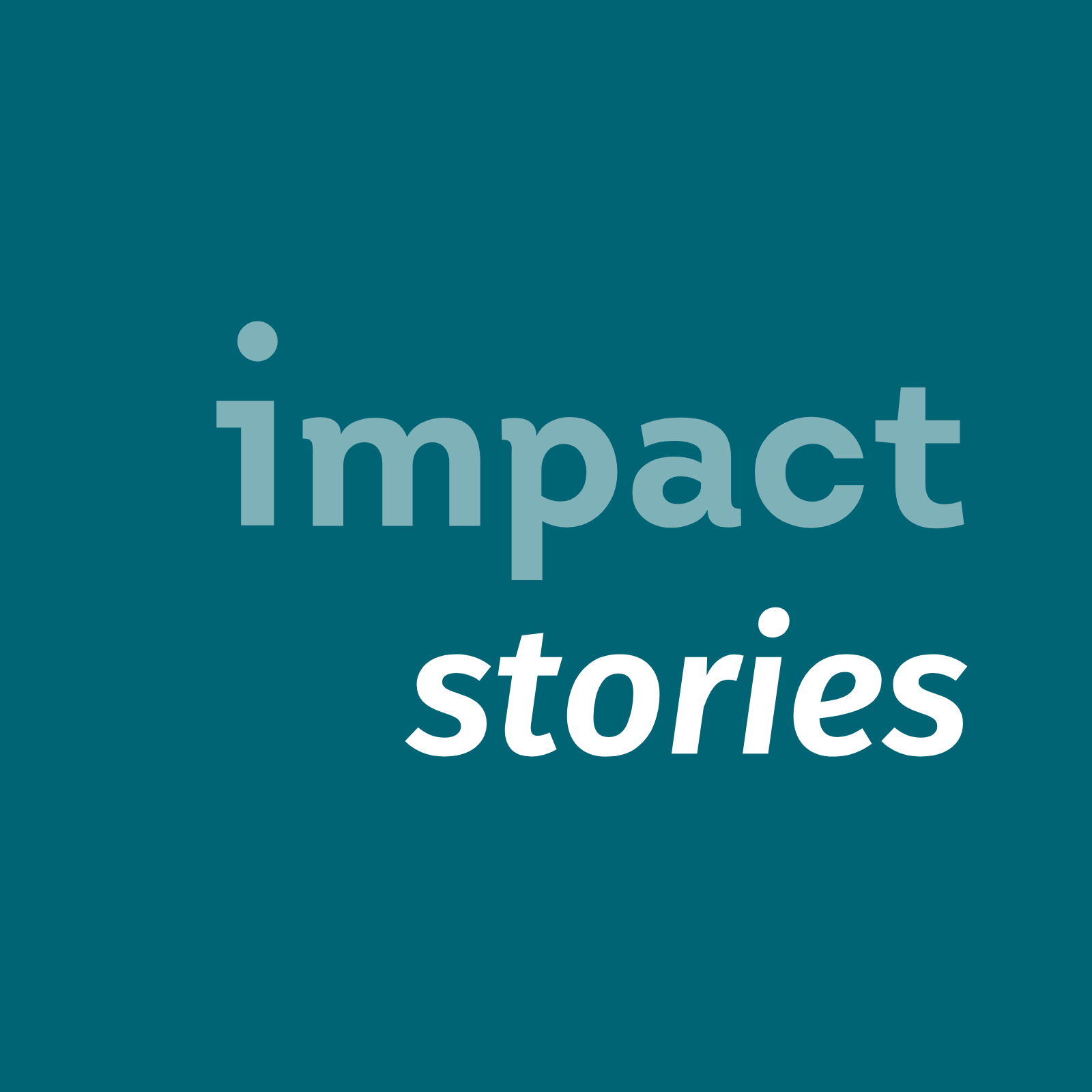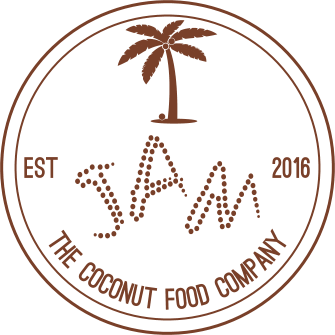

JAM The Coconut Food Company
JAM The Coconut is an integrated coconut processing company based in Nigeria. Eighty per cent of its staff are women, often from low-income communities. Founder Ebun Feludu explains how her model creates agency for them.
To start, can you briefly introduce yourself?
My name is Ebun Feludu. I call myself the Chief Coconut Cracker at JAM The Coconut Food Company.
Why did you found JAM The Coconut?
I have always been interested in agriculture, gardening and the simple joy of watching things grow. Once I turned forty, it became time to build a legacy enterprise that would have lasting impact and outlive me. No matter how much time we spend on earth, it is really the lives we touch whilst we are here that really matters. These were the driving thoughts that led me to establish this company in 2016.

What is JAM The Coconut all about?
JAM The Coconut Food Company is a coconut processing company. We started with coconut milk because I am lactose intolerant, and I needed an alternative to dairy milk. It turned out there were many others like me who were also lactose intolerant and wanted non diary milk options. In the process I discovered other products could be made from coconuts. Today we have become an integrated coconut processing company. We add value to coconuts by producing edible products like coconut flakes, coconut cinnamon balls or coconut oil, as well as a range of personal care products for the hair and skin.
How does your business model include low-income communities?
We provide training and employment in our factories in Okun Ajah and Badagry. In these communities, the men typically go out to look for work and many of the women are left behind. We train these women and employ them. Our ethos is to always maintain a share of eighty per cent women in the team.
We also started to engage smallholder farmers, mostly in Badagry. We sign contracts with them to cut out the middlemen. This way the farmers also avoid waiting too long before they sell, which is risky because coconuts can rot.

How much do your employees earn?
Our staff earn anywhere between 100 and 300 dollars a month depending on their department. We just launched a new product line of our naked and lacquered coconut bowls which have become a major hit. Our women used to earn about 20 dollars a month in previous jobs. Others were not able to work at all, because there are few opportunities.
How does this empower women?
My father died when I was eight years old, and my mother raised six children on her own. In our society, women’s basic right to livelihood is tied to either their husbands or their fathers. It is a disaster to leave the lives of women in the hands of men. By training and employing women, I want to create agency for them. With agency, they can choose what is right for them and opt out of what is bad for them.
Through our trainings, we also imbibe in them the spirit of excellence. They carry this spirit with them when they leave the factory grounds and create a ripple effect of that excellence in their communities.
Also, our company is a platform that elevates. In February 2022, we had the opportunity to take two staff members to a GIZ GOPA sponsored exhibition in Abuja. It was their first time on a plane, and they were so excited. I saw a shift in their eyes and minds and in the conversations we had afterwards. This may seem simple to frequent flyers, but it was a big deal for my team, and it was a steppingstone for the next goal for us: international opportunities.
How many people do you reach?
In 2016, we started our company in my kitchen. Now we have two factories in Lagos, and offices in Lagos, Abuja, and Ibadan. We have 35 staff members, 28 of whom are women. Additionally, we have contracts with about 10 farming families.
How do you measure the impact you create?
Our greatest impact for us is the transformation we see with our women and young men. We need to do a better job of documenting their origin stories and where they are now. We plan to use questionnaires to capture the situation of women when they start work with us and monitor it over time. These questions have inspired me to work on that quickly.

What makes your model financially viable?
We have a large consumer base. Nigeria is our biggest market now, but we also export to the United Kingdom, Ireland and the United States.
In 2021 we had 120,000 US dollars in revenue. In 2022, our goal is 400,000 US dollars.
Do you receive any support from outside the company?
Yes. a government grant helped us increase capacity significantly for export. We also got a couple of other grants, loans, and fellowships. We have also got into several amazing Fellowships and Accelerators such as AWP, Changing Narratives, Impact Amplifier and Cascador, to name only a few.

What are your plans for the next years?
I have a vision to set up a 500-hectare coconut plantation and a factory in the same village. We want to train smallholder farmers there, supply seeds, and offtake the coconuts to process. We also want to make the community a stakeholder in the process. The village will have a school, a clinic, and other basic facilities where women can work. By doing this, we will reach at least 2,000 people.
We have already identified a location in Oyo state, which suffers from flooding. Coconut trees have deep roots and will help limit the impact of floods and erosion. We have also started a very small pilot coconut plantation project.
What do you need to realise these plans?
In total, we need funding of about 3 million US dollars for the plantation for the first phase. We are in the market for impact debt financing and grants for the processing and plantation respectively.
How else are you planning to expand JAM The Coconut?
We have just opened an office in Abuja. This will give us an opportunity to make our products more widely available not only in Abuja, but in North West and North Central Nigeria. We also launched our coconut bowls, which have become very popular with our conscious consumer base. To meet demand, we will train 50 more women in the coconut bowl production line and source more international off takers.

What main challenges does JAM The Coconut face?
You cannot scale a business by bootstrapping. I have taken funds from other ventures and ploughed the funds into this company. It can be discouraging to be unable to go as far and fast as one would like, but I am slowly getting over this limiting factor.
Another challenge is retaining staff. We are small, so we can’t pay as much as the medium and large companies. So sometimes, people just leave without giving us enough notice, which can be very disruptive.
Also, the Nigerian business environment is not for the faint of heart. This year, for example, officials stopped a truck of coconuts worth 6,000 dollars for five days without a good reason. I am a proud Nigerian, but working in this terrain requires a high level of resilience.
What inspires you to keep going?
Great question. I met a young girl at an event earlier this month where we were exhibiting. She walked up to me and asked in wonder, ‘Do you own this company?’ I confirmed that I did. She then asked: “I would like to own a company like this one day. What is one thing you could tell me to help me build my own company?” I told her this: Find your why, and make sure it is bigger than you. I am deeply passionate about seeing transformation in the lives of my staff. This is what keeps me going: I keep my why in view.
What recommendations do you have for other inclusive business companies?
Have a why and make sure your why is bigger than you. You are going to need that to get you through the really hard days. There will be many of them, but many exhilarating days as well.

The Impact Stories are produced by the Inclusive Business Action Network (iBAN). They are created in close collaboration with the highlighted entrepreneurs and teams. The production of this Impact Story has been led by Susann Tischendorf (concept), Sara Karnas (video), Katharina Münster (text), Olachi Thelma Opara (info graphics), Christopher Malapitan (illustrations), and Alexandra Harris (editing). The music is royalty free. The photographs are courtesy of JAM The Coconut Food Company.
Updated: 03/2022.